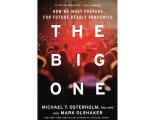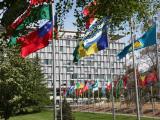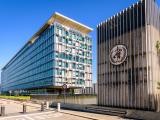(CIDRAP Source Weekly Briefing) – How does a global company keep sharp its planning for a disaster that may be long in the making, acute at the onset, months in duration, and bigger in scope than any one-time event?
For Don Ainslie, global security officer at Deloitte Touche Tohmatsu, 2 years of minding avian flu's advance and planning for a human influenza pandemic has presented just such a challenge.
He's found that preparing for a pandemic requires attention to another kind of threat--planning fatigue. Ainslie, whose organization provides tax, audit, consulting, and financial advisory services to clients worldwide, has used two strategies to cope:
- Delivering just enough information to just the right audience.
- Keeping his team of 15 planners thinking about more than a pandemic.
Avoid information overload
"Part of the challenge and the responsibility that we have is to sift through information and make sure our message reflects accurate information," he said. His team relies on the World Health Organization (WHO) and the Center for Infectious Disease Research & Policy (CIDRAP) for primary information. The team also searches through local news reports.
When an e-mail is sent out to a particular department, any information not relevant to the targeted employees is excluded. Recipients get only what is useful for them. At the same time, Deloitte has an avian influenza preparedness Web site made available to Deloitte partnerships located in over 150 countries to ensure everyone can have access to critical information when they go looking for it. Deloitte is made up of some 80 member firm partnerships with 130,000 employees worldwide.
Give the planners variety
"Planning for a pandemic helps you plan for other events," Anslie says, and his team knows this. "When you plan for a terrorist act or an earthquake, it does not help you plan for a pandemic."
Nevertheless, focusing time only on pandemic plans can lead to a sense of being overwhelmed by the topic, rather than overloaded with planning work. Because the team has responded to such events as the bombings in London and Hurricane Katrina, everyone has had a chance to step away from a concentration on pandemic planning.
So while it may seem counterintuitive, to stay best prepared for a pandemic, the Global Security Office team members focus on multiple projects. So far, he says, for his virtual team (with employees working from such places as the United States, Australia, and the United Kingdom), pandemic planning fatigue has not been a problem.


















